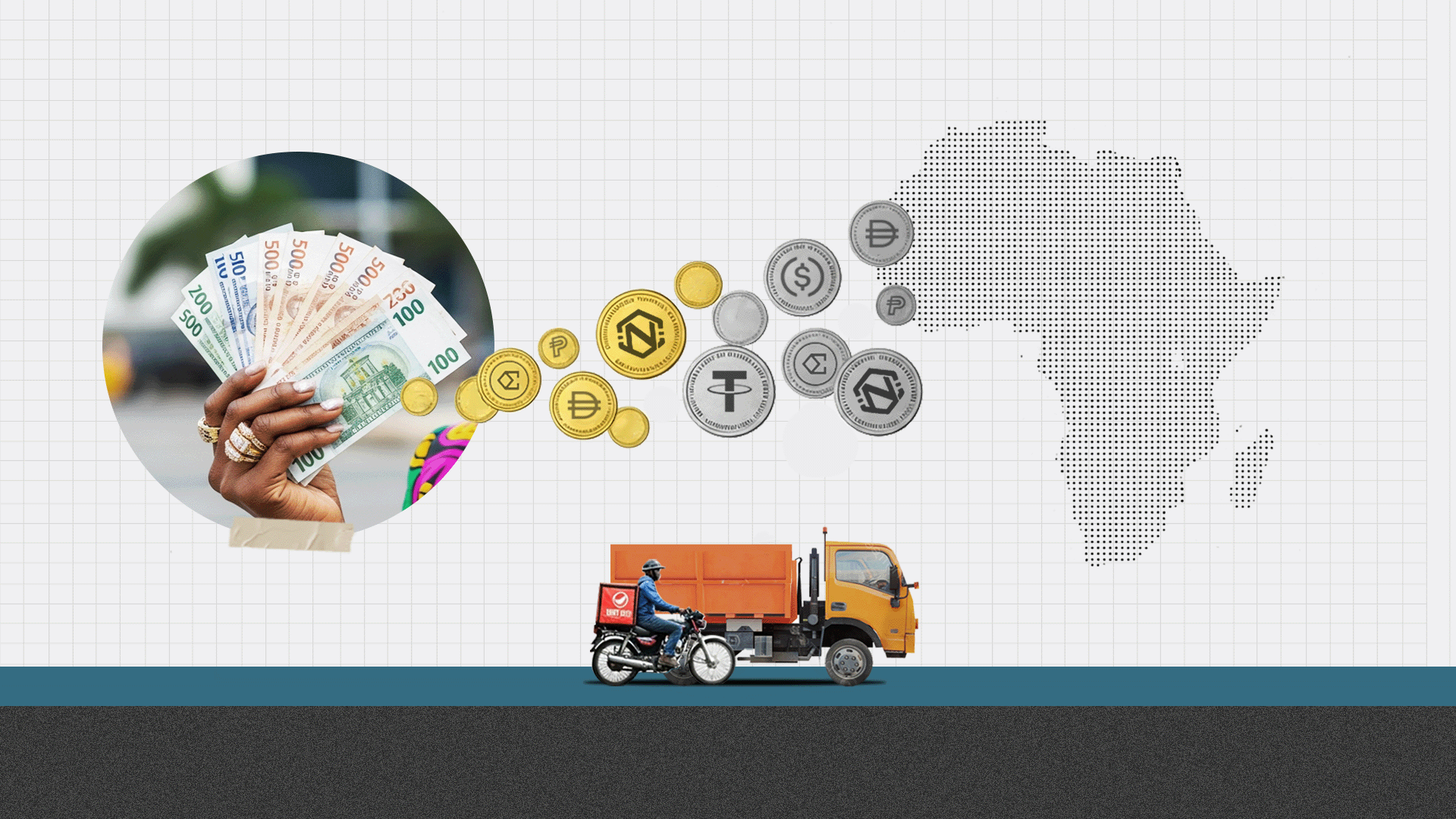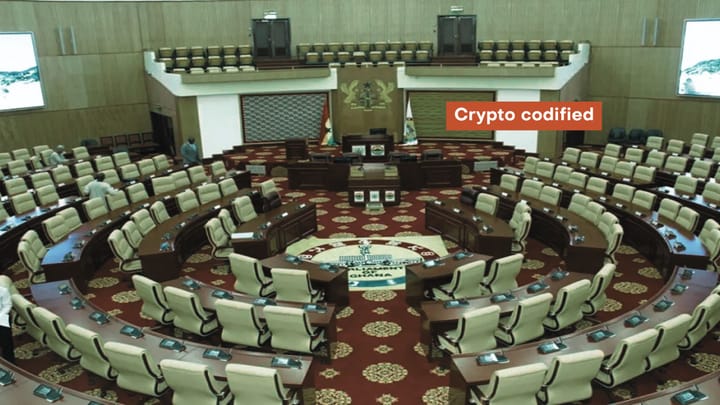Unlocking Africa’s next economy would require new money
Ayotunde Alabi highlights how adopting stablecoins and tokenized assets can help Africa build a modern financial system that drives trade and economic growth.

The views expressed are those of the author and do not necessarily reflect Mariblock’s editorial position.
Across Africa, the very bedrock of our economies —money — still moves at the speed of paperwork even as markets demand the speed of the internet. An exporter can lose weeks untangling border paperwork before seeing a cent. A family sending money home can watch nearly ten percent of their earnings vanish in transfer fees. Small businesses, the backbone of our jobs, face a $330 billion financing gap that keeps them from growing. All these factors, among others, contribute to the extremely low trade within Africa, which only accounts for 15% of exports, far below other regions.
Given Africa’s potential, this structural barrier continues to hold us back. And breaking through it would require a financial system built for today, which is what I call new money.
New money is not merely a digital version of cash. It is a new form of value built for the internet age: assets that are programmable, borderless, and instantly redeemable. Unlike the slow, opaque systems mostly operational today, new money settles in seconds. It takes the form of stablecoins, backed by transparent reserves, and tokenized assets — Treasury bills, stocks, and even real estate — that can be split into fractions and traded by anyone with a phone. The principle is simple: speed, transparency, and universal access.
Why it matters for Africa
This new financial architecture can dismantle the friction that has held us back for decades. A small business could pay suppliers instantly and put idle cash to work in safe assets. A household could save and invest in ways that protect them from inflation, without needing a broker or a foreign account. Exporters could be paid in hours instead of weeks, without detours through London or New York, and without relying on scarce dollars.
The early signals of this future are already here. Tokenized stocks have already attracted tens of thousands of first-time investors in South Africa. This allowed rand-denominated, fractional access to global equities, opening doors to savers who had been excluded. Nigeria’s regulators are piloting a naira-backed stablecoin. And the Pan-African Payment and Settlement System (PAPSS) is beginning to knit together our national payment networks. These are promising starts, but they remain isolated experiments. What Africa needs is a coordinated, continent-wide shift to bring new money into the mainstream.
If Africa is to move faster into the future of money, the single most transformative step would be the creation of a wide African Continental Free Trade Area (AfCFTA) regulatory rulebook for stablecoins and tokenized assets, paired with regulatory passporting across member states. Imagine one coherent set of standards for reserves and redemption rights, proof-of-reserves, client asset segregation, and anti-money-laundering safeguards, recognized continent-wide and wired into PAPSS for instant FX. That would unleash both USD-backed and local-currency stablecoins at scale while opening doors for tokenized T-bills and equities to move freely across borders. In short, it would provide the compliance scaffolding that innovators and investors have been waiting for.
Other regions have shown the immense power of clarity. In the U.S., the GENIUS Act laid out clear rules for stablecoins – full reserves, redemption rights, and federal supervision. The European Union’s MiCA regulation is phasing in compliance across 27 markets. The U.K. has signaled its openness to overseas issuers. While none of these frameworks are perfect, they all prove that predictable, proportionate rules can turn scattered pilots into robust, trusted systems.
Africa can adapt these lessons to its unique realities. This means a regulation that is phased in based on market maturity. It means non-negotiable principles like proof of reserves and segregation of client funds. It means deep integration with PAPSS and local instant payment rails. And most importantly, it means an AfCFTA-wide rulebook: a single, clear framework, recognized across all member states, that lowers costs, deepens liquidity, and gives innovators and investors the confidence to build and scale.
Building a foundation of trust
But rules alone will not build trust. We must earn it. That means clear disclosures and simple risk labels for the public, alongside education that helps people avoid scams or misleading schemes. Consumers must know precisely what they are buying, and a single bad experience can erode confidence across the board, which is why exchanges and wallets must put customer protection at the absolute center of what they do.
Collaboration will also be critical. Public–private sandboxes will allow regulators and innovators to test use cases like stablecoin payrolls, B2B trade credit, or diaspora remittances in controlled environments, with data shared back to supervisors. This builds confidence while letting the market prove what works.
Transparency must also become the price of entry: quarterly reserve attestations, on-chain proof-of-liabilities, and mandatory chain analytics for compliance are no longer “nice to haves.” They are the baseline for a credible system. And for this system to be truly pan-African, interoperability is non-negotiable. Banks, mobile money operators, and licensed platforms must connect through open standards and APIs, not walled gardens so that that value can move seamlessly across borders.
From fintech play to economic resilience
Finally, there’s a macro angle. By encouraging regulated tokenized Treasury bills and stable yield instruments, Africa can reduce its reliance on informal dollarization and give savers safer, inflation-resilient options. This is how new money becomes not just a fintech play, but a pillar of the continent’s long-term economic resilience.
This conversation is too meaningful to be left to regulators alone. Entrepreneurs, investors, and development partners also have a crucial role to play. Industry events like Moonshot by TechCabal are already creating a neutral ground where these stakeholders can discuss and work together to build the integrated African financial system we need.
If we succeed, the rewards will be transformational. Stablecoin settlement could empower our exporters. Tokenized Treasury bills could give households safer, inflation-resilient savings. And genuine financial inclusion could finally become a reality, not just an aspiration.
Africa has done this before. Mobile money was once doubted, a fringe experiment, until it became an indispensable part of life for millions. New money has the same potential. The question is, will we act quickly enough to seize it?
Ayotunde Alabi is the CEO of Luno Nigeria, with over a decade of experience in finance and technology. He has previously held leadership positions at Spektra, ARM HoldCo, FBNQuest, and Heritage Bank Limited.
He is a SEC-sponsored professional with certifications from Nigeria’s Chartered Institute of Stockbrokers and the U.K.’s Chartered Institute for Securities & Investment.



